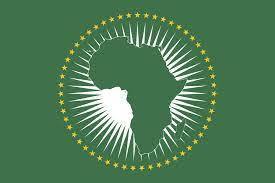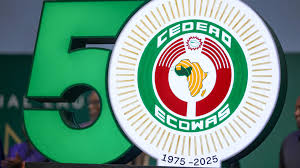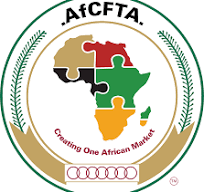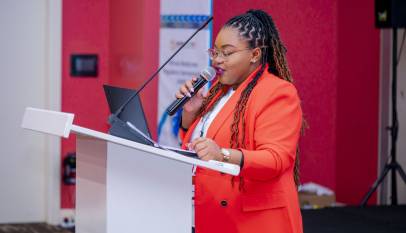INTERVIEW: “How I witnessed women and girls being killed during the Rwandan genocide” – Tony Makayu
Tony Ssembatya Makayu is a girls’ education and women activist currently working for the Access to Justice department at the United Nations Entity for Gender Equality and the Empowerment of Women (UN Women).
Makayu, who sits on the board of the International Association of Community Development, IACD, is the founder of Kirabo Doors of Hope Children’s Centre, a nonprofit working with children in Uganda, is himself a Ugandan national with strong link to Rwanda where he witnessed firsthand the 1994 Rwandan genocide in which girls and women were the major victims.
In an exclusive interview with African Newspage, he speaks about his passion for girls’ education and women’s emancipation; experience witnessing firsthand the Rwandan genocide as well as the role African women and girls could play towards the continent’s sustainable development
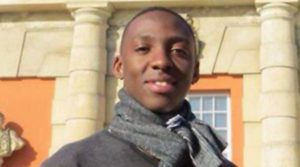
You seem to have an uncommon passion for girls’ education and women’s emancipation. What can you say shaped your mindset although a typical African man that was born and bred in Uganda?
I first had contact with the outside world, when I was 15years old. My parents, who were ordinary peasant Ugandans, put me on a KLM flight to Rome via Amsterdam to spend 3 months with several youth from all over the world celebrating the world youth day. It was also a moment to meet an uncle who worked in Rome for MISNA, a news agency in the Vatican, and spend time with him, as well as visiting a host family in Foggia-Bovino.
That experience would later influence my thoughts on a fairer, equal and free world for all, especially women and girls. I would later traverse Australia, China, United States and Europe. The defining moment though was my 3-year experience as an undergraduate student in northern Uganda between 2004 and 2007, which was under a militant insurgency led by LRA’s Joseph Kony, who is currently wanted by the International Criminal Court, ICC. As students in such an unsafe environment, we were regularly seeing Internally Displaced Persons, IDPs, forced to live in makeshift camps. The saddest of this was that majority of them were women and girls!
Although a Ugandan national, you have a strong link to Rwanda and witnessed firsthand the 1994 Rwandan genocide in the country where girls and women were the major victims. How horrifying was the experience?
What happened in Rwanda leaves a lot to be desired. The devil was at work. However, the resilience Rwandans have exhibited in its aftermath and their ability to rebuild the country to where it is today is also a unique story itself. One could imagine how frightened women and girls were in 1994 Rwanda. The atrocities committed against them, such as rape, were saddening.
Many mothers witnessed their children being killed, or children witnessed their mothers being killed. Many had to run to seek refuge in neighboring countries, such as Uganda and Tanzania. The sight of bodies floating on the Kagera River was another horror itself. A lot has been written about the Rwandan Genocide and a lot said in all forms, but the conclusion remains one, Never Again! I think it’s a message to Africa that war does not solve difference rather it intensifies the problem.
You were also in Uganda during the Lord’s Resistance Army and witnessed the atrocities committed by Joseph Kony’s LRA against women and girls. How can you describe that experience?
Some of the worst crimes LRA committed were forcefully pushing the poor people off their land. The peasant people, mainly women grow their food on the land. Since they are mainly subsistence farmers, they would rely on this to feed. Some of the problems that emerged later were lack of food, hence the World Food Programme, WFP was bringing in food aid, and up to today, the challenge Northern Uganda is struggling with is that of land redistribution as people are slowly returning to their former homes after the return of relative peace in the region.
Issues like land fragmentation, land ownership and inheritance, affect mostly women in an African environment. They are neither protected by the law or even by the state. Another great challenge was forcefully marrying off the young girls to the LRA rebels. Many were taken into captivity and never to be seen again. Many were maimed with their lips and noses cut off. It is unbecoming and unacceptable.
Women always bear the brunt for conflicts in Africa, even though they are rarely active participants in the conflicts. As an expert on peace and conflict resolution, what measures do you think must be taken to protect women and girls during conflicts in Africa?
The UN Security Council Resolution 1325 has highlighted the relevance of inclusive participation of women in peace processes and conflict resolution. In most instances across Africa, women and girls only turn out as victims. They are neither consulted during peace processes nor do the post conflict resolution mechanisms favor them. This is even worse for the rural women and girls. It is not only for the elite women to be participants in the conflict resolution mechanisms, but rather more relevant for the grass root women and girls, since in most cases they are the victims.
As girls’ education and women empowerment activist, what contributions do you think African women and girls can make towards Africa’s sustainable development, if they are properly educated and empowered?
I was part of the so many young people, who in March 2015 joined UN’s secretary general Ban Ki Moon and UN Women’s executive director, Phumzile Mlambo Ngcuka, on the march to Times Square in New York from the UN Secretariat, with activists from all over the world, commemorating the 20th anniversary of the Beijing Declaration and Platform for Action. It also coincided with the 59th Session of the Commission on the Status of Women (CSW).
The events that followed put in place mechanisms and analysis of the role women can play in advancing for a better world. It was also the launch of Planet 50-50 as well as report of the “Progress of the World’s Women 2015”. All these instruments clearly highlight the role women, not only in Africa, but the world over can play in advancing for a better world. Imagine half of the population in Africa are women and girls. If they continue to be treated as second class citizens, Africa cannot and will not progress. Together we can change this!


